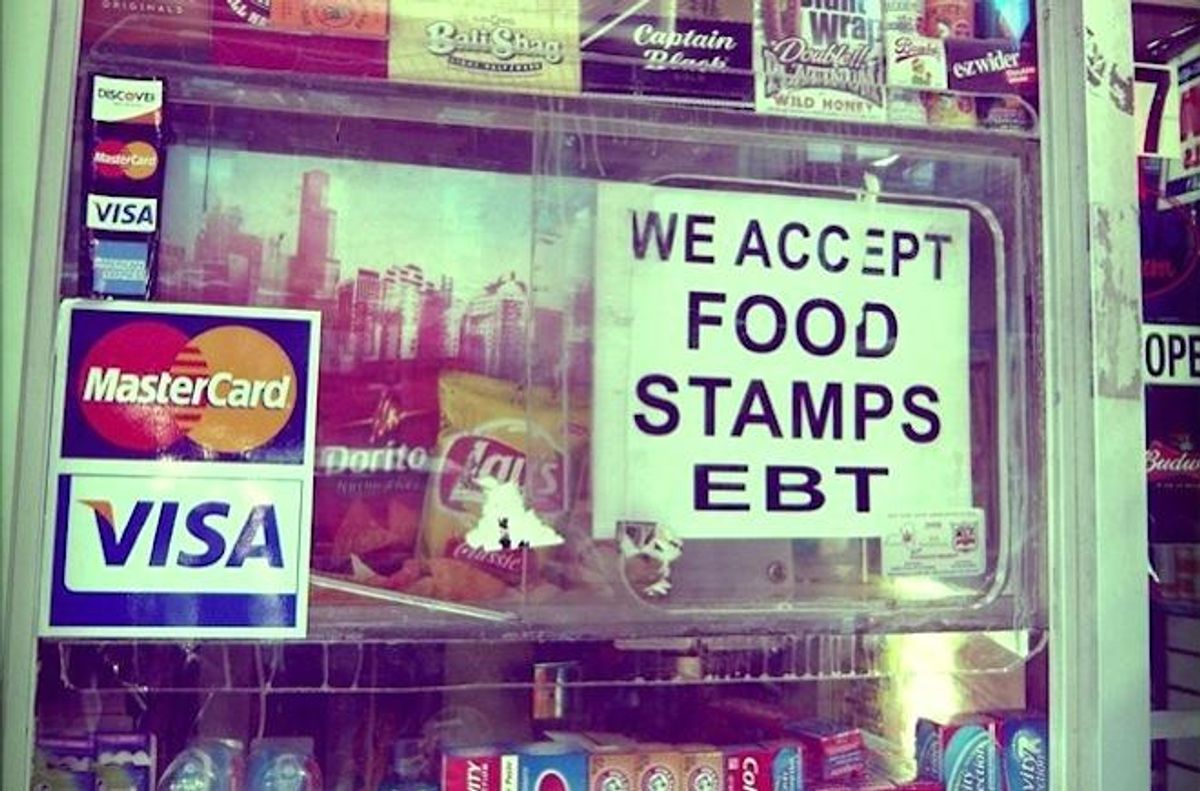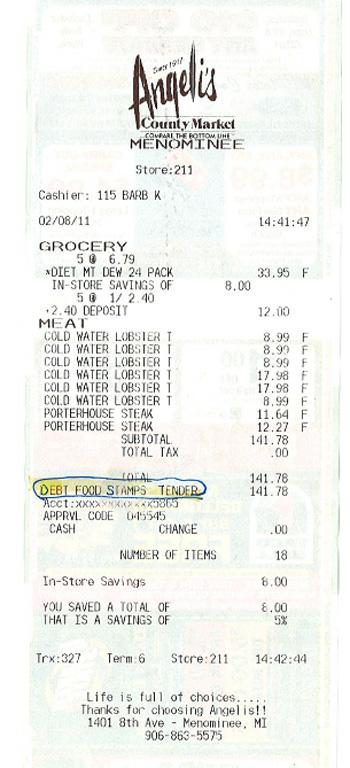In June 2011, an image of a grocery receipt reportedly found in the parking lot of Angeli's County Market (in the town of Menominee, Michigan) was widely circulated online, supposedly documenting a $141.78 purchase of six lobsters, two porterhouse steaks, and six 24-packs of Mountain Dew soda, with the entirety of the buy covered by food stamps:
Grocery receipt. Read it carefully. This receipt was found in the parking lot of the grocery store. Menominee, Michigan.
Doesn't this give you a warm fuzzy knowing those who have to solicit governmental assistance are able to eat well this weekend ...
The card should be limited to beans, rice, milk and fresh veggies.
The possibility that this receipt might be real outraged many who felt that such food assistance programs should be limited to the buying of staples and necessities, and that using food stamps for such extravagances as steak and lobster (plus soda) was the equivalent of the recipient's thumbing his nose at the taxpayers who fund such programs.
As it turned out, the receipt was genuine. But regardless of how dismayed many viewers might have felt about the use of food stamps for such luxury foods, the purchaser's use of a Bridge Card to buy lobster, steak and Mountain Dew did not violate any existing laws or rules.
However, the purchaser (who had used his girlfriend's EBT card) didn't quite get off scot-free. He was arrested not for making disallowed purchases with food stamps, but for turning around and re-selling the foodstuffs he had bought with the stamps to someone else for 50% of their original retail price:
Louis Wayne Cuff, a 33-year-old Menominee man, was arraigned in 95th District Court in Menominee for food stamp trafficking, a felony. Cuff's arrest resulted from a monthlong joint investigation by the state Department of Human Services' (DHS) Office of Inspector General and the Menominee County Sheriff's Department.
Cuff, who allegedly used a Bridge Card to buy the stuff and then sold it for 50 cents on the dollar, faces up to five years in prison and a $10,000 fine. He is free on a $5,000 bond. His preliminary hearing is scheduled for June 15 [2011].
While some speculated that the receipt was fabricated, or doctored, Mike Jankovich, general manager of the company that runs the store, said all along it was authentic. The cooperation of store employees led authorities to Cuff.
Jankovich bristled at the suggestion by some that his clerk should have refused to allow the extravagant order on a Bridge Card. He pointed out that his employee had no right, under food assistance rules, to nix the transaction.
DHS spokeswoman Gisgie Gendreau wrote: "While federal guidelines allow for food assistance to be used to buy [lobster, steak and Mountain Dew], these purchases go against the intent of the program, which is to provide help to those who are truly needy."
Cuff was charged with three counts of food stamp fraud and was sentenced to 45 days in the Menominee County Jail and six months probation.


